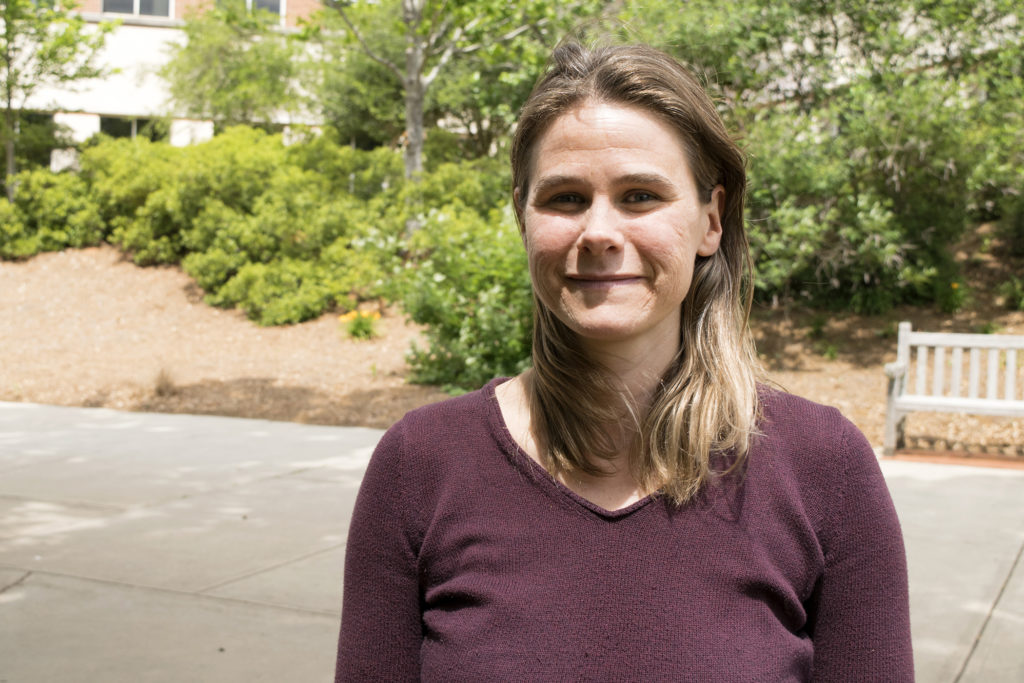Athens, Ga. – Jill Anderson, an assistant professor of genetics in the University of Georgia’s Franklin College of Arts and Sciences, has received a $1.1 million grant from the National Science Foundation Early Career Development Program to study the effects of climate change on plants.
CAREER awards are among the NSF’s most prestigious, and they support junior faculty who exemplify the role of teacher-scholar and the integration of education and research.
Anderson’s project tests whether plants will be able to survive on a warming planet by using a mustard plant species called Drummond’s rockcress as a model. Native to the Rocky Mountains, Drummond’s rockcress can grow at elevations as low as 5,000 feet and higher than 12,000 feet, and its range extends from Alaska to Arizona.
“This plant has been exposed to variable climates throughout its evolutionary history, and studies suggest that it has adapted well to changes in climate brought on by events like the expansion and contraction of glaciers,” said Anderson, who also has a joint appointment in UGA’s Odum School of Ecology. “Now we want to see if this plant can do the same thing when faced with rapid changes in climate brought on by human activities.”
Anderson is particularly interested in the adaptations that allow plants like Drummond’s rockcress to “migrate” to new areas in response to changing climates.
As the atmosphere warms, for example, seeds may begin to germinate at higher elevations, allowing plants to move into environments that were previously too inhospitable.
“Plants can also shift how they behave in response to changes in the environment,” said Anderson, who also serves as a member of UGA’s Plant Center. “We know that Drummond’s rockcress is flowering about 13 days earlier than it was in the 1970s, but we want to find out how much of that is an adaptive response to earlier springs or how much of that is just a symptom that the plant is stressed.”
Anderson and her colleagues will conduct large-scale field studies and laboratory experiments to see if natural plant populations have enough genetic diversity to adapt to a rapidly changing climate. The lessons they learn from studying Drummond’s rockcress may help identify plants more or less vulnerable to climate change, which could influence conservation efforts for both natural and agriculturally important plants.
“There will be situations in which plants can’t keep up with climate change, and several scientists are researching whether we should relocate plants to areas that will be more hospitable in the future,” she said.
For the educational component of her award, Anderson will expand an ecology course for high school students in Colorado, where she does her fieldwork.
Students enrolled in the course conduct their own independent research projects, and they receive a full high school science credit for successfully completing the class.
“This grant expands the high school project by bringing in teachers and teachers in training so we can give them the information and resources they need to take their students outside and do field biology,” Anderson said.
Anderson and her colleagues will work with the teachers to build lesson plans based on fieldwork, which they will post online so that other teachers around the country can use the same ideas for their own classrooms.
